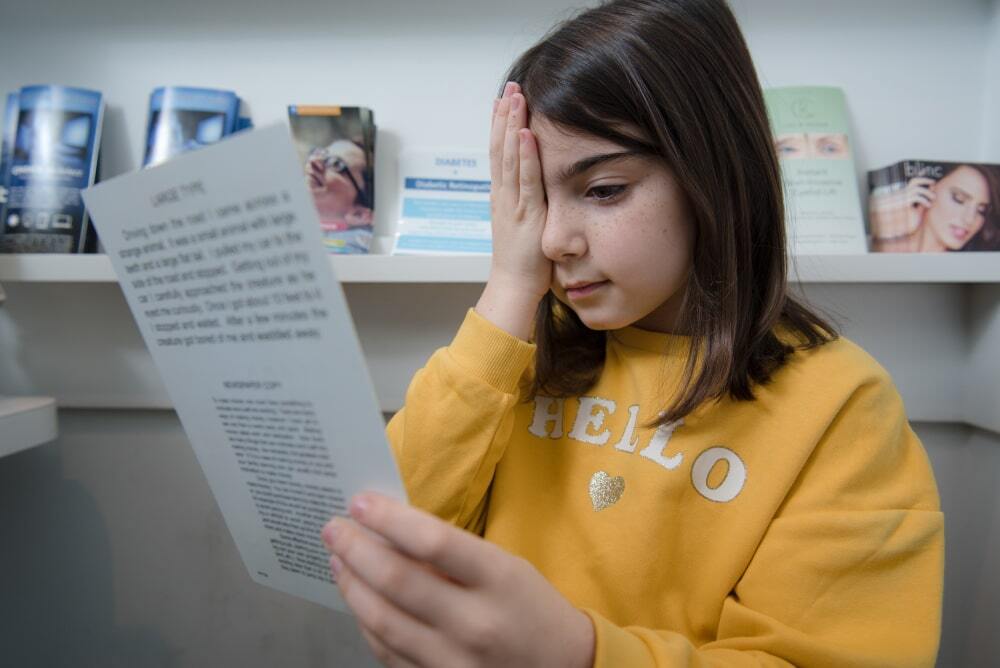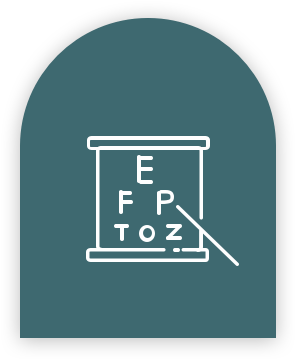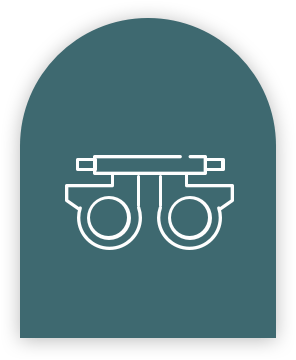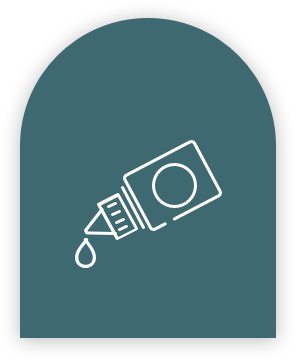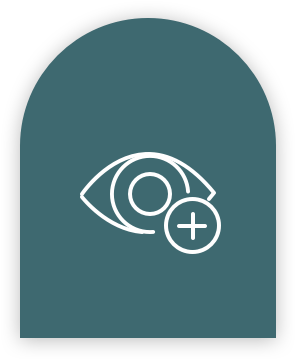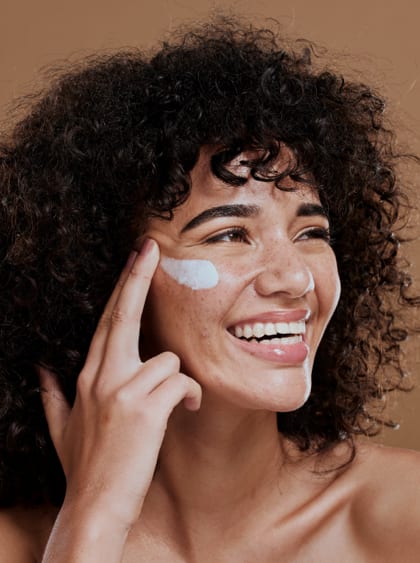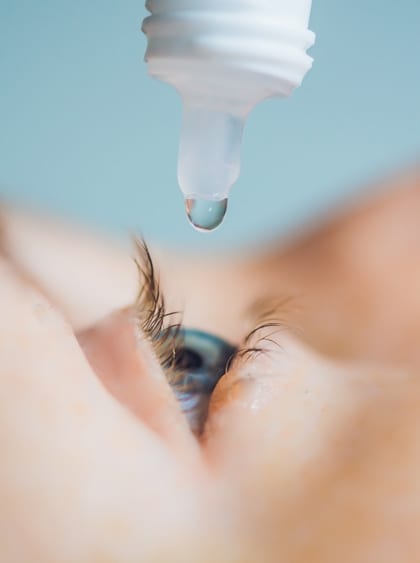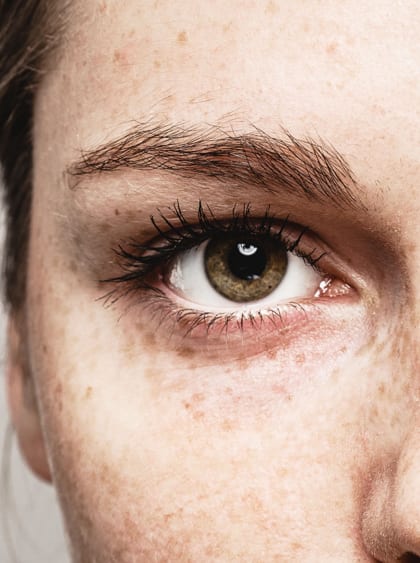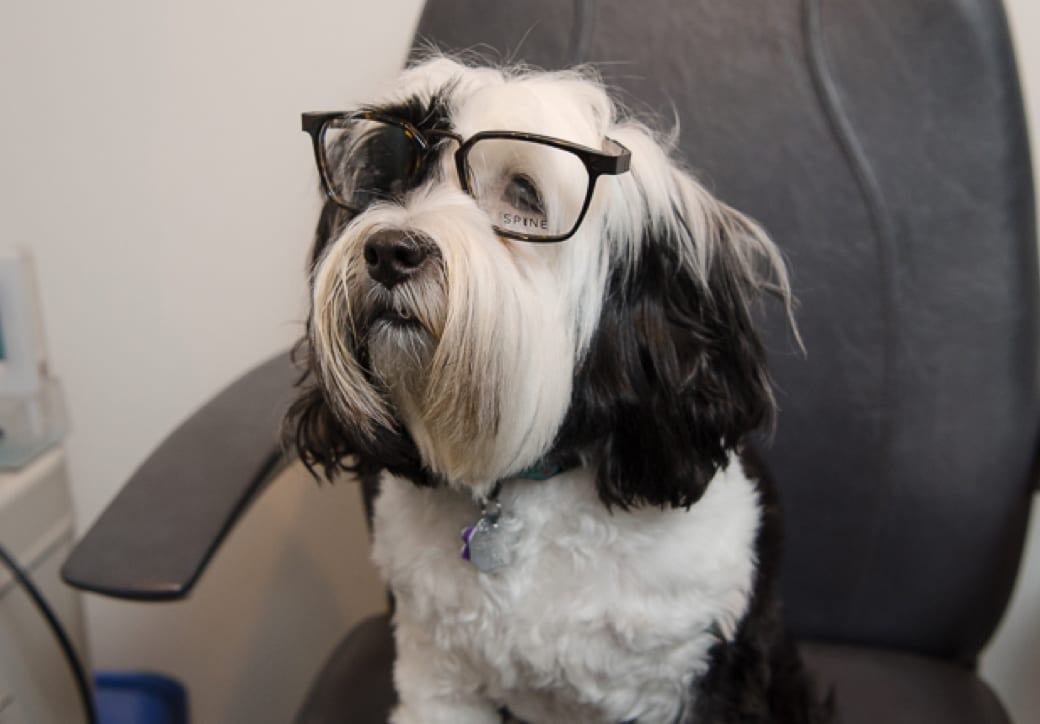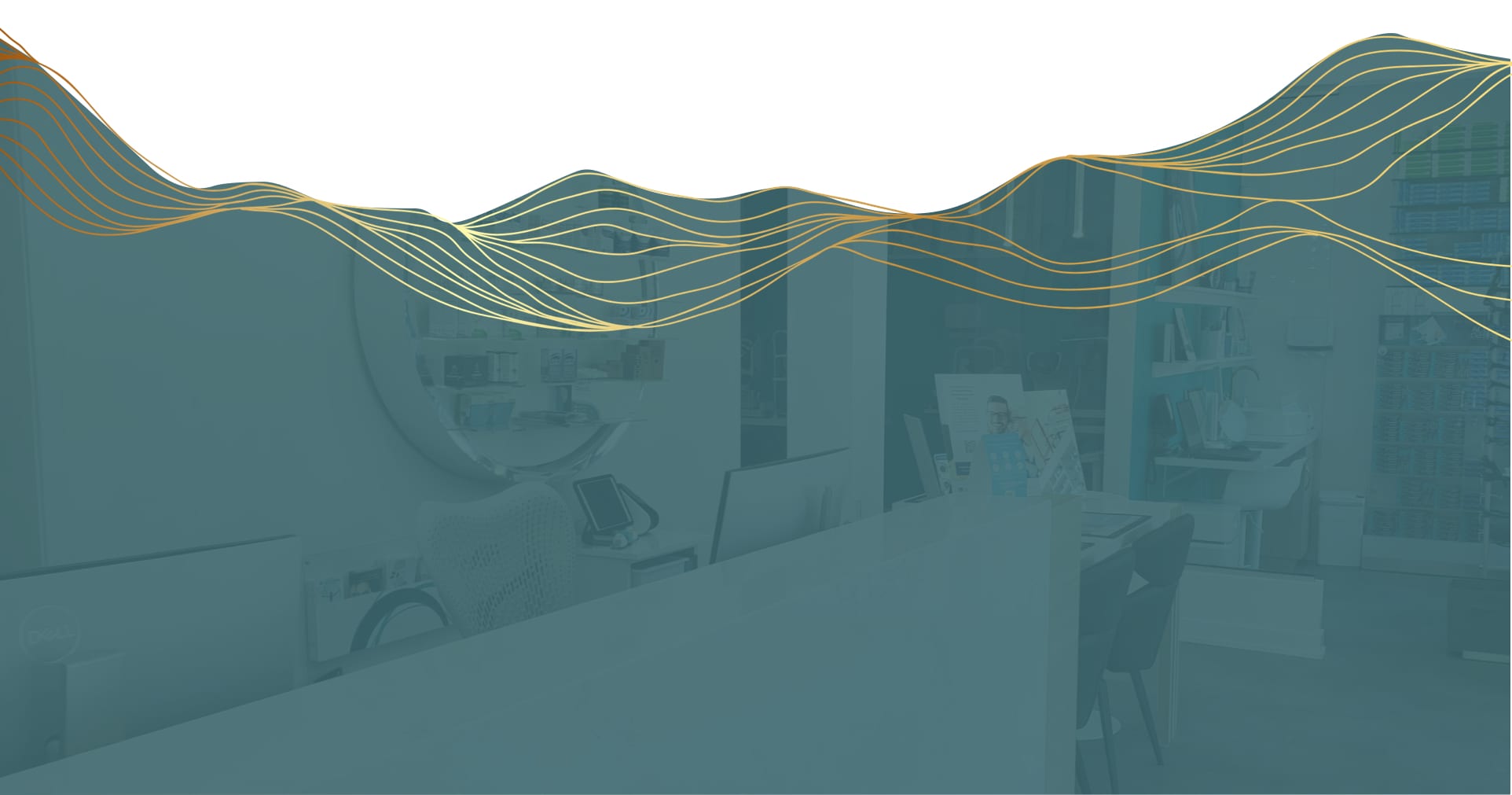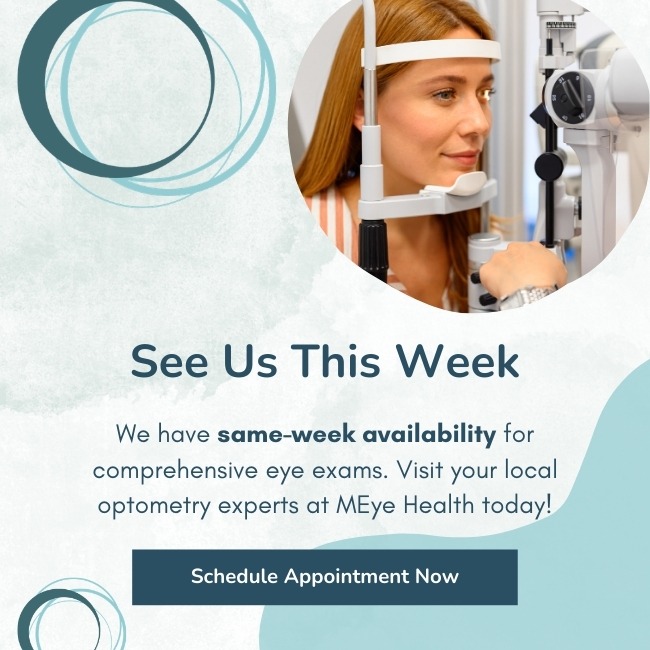Myopia, also known as nearsightedness, is a common condition characterized by difficulty seeing distant objects clearly. It affects many children and adults and is becoming increasingly prevalent, particularly among younger generations. Since the pandemic more and more children are starting to experience myopia.
But does myopia get worse with age? The short answer is yes. There are several reasons why myopia worsens, and childhood myopia differs from other forms of the condition. Thankfully, there are several ways you can manage this condition and prevent it from worsening.
Why Does Myopia Worsen with Age?
Myopia typically begins in childhood, and without intervention, it can progress into adulthood. Moderate cases of myopia typically stabilize around 18–21 years of age.
Several factors contribute to the worsening of myopia over time. It is thought myopia occurs due to elongation of the eyeball. This in turn increases the amount of refractive error and causes a decrease in distant vision clarity.
Another factor that can contribute to worsening myopia is the environment. Extended periods of near work such as reading and computer use can cause an increase in the amount of myopia over time.
Other Causes of Myopia Progression
Genetics and heredity can also play a significant role in myopia progression. If both parents have myopia, your child may be more likely to develop this condition. However, genetics alone is not responsible for the worsening of myopia.
Near Work & Myopia
Prolonged near work can cause myopia to worsen with age. When we focus on a nearby object for an extended period, such as reading or working on the computer, our eye muscles are in a constant state of contraction, which can cause fatigue. Over time, this can lead to changes in the shape of the eye, which can make myopia worse.
Outdoor Time & Myopia
Spending more time outside in natural light has been shown to prevent myopia progression. This may be due to the fact that outdoor light stimulates the release of dopamine in the retina, which can help regulate eye growth.
Managing Myopia
While myopia cannot be cured, several strategies can help manage the condition.
Corrective Lenses
Common methods of correcting myopia are wearing corrective lenses like glasses or contact lenses. This corrects your distance vision and allows you to see distance clearly but does not prevent your myopia from worsening.
Methods for myopia prevention in children involve using specialized corrective lenses like myopia control spectacle lenses or contact lenses. In Canada, there are specific lenses that are Health Canada approved to prevent myopia in children. Specialty myopia control soft contact lenses have demonstrated a potential myopia reduction of 49% to 81%. Spectacle lenses have shown a potential myopia reduction of at least 52%.
Orthokeratology
Another option is orthokeratology, also known as Ortho-k, a nonsurgical treatment that involves wearing specialty contact lenses while you sleep. Ortho-k lenses gently reshape the cornea, which can temporarily correct myopia. This method has also been effective in slowing myopia progression, especially in children and adolescents.
Visiting your eye doctor regularly helps to ensure your lenses are properly fitted and adjusted for optimal vision correction
Lifestyle Changes & Eye Exercise
Lifestyle changes and exercise may also help manage myopia progression. Taking regular breaks from close work, such as reading or using electronic devices, can reduce eye strain.
Eye exercises, such as focusing on distant objects and shifting your gaze between near and far objects, may also help to strengthen or relax your eye muscles and improve your vision.
Atropine Eye Drops
Atropine eye drops can also be used in conjunction with one of the other treatments to slow the progression of myopia. Atropine works by temporarily paralyzing the focusing muscles in the eye, which decreases the amount of strain placed on them. Atropine eye drops have been found to be effective in preventing myopia progression and may even help reduce nearsightedness when taken consistently over time.
Laser Eye Surgery
If you are 18+ and your prescription has been stable you may be a candidate for Laser Eye Surgery. Getting laser eye surgery does not prevent your vision from changing in the future.
The Importance of Routine Eye Exams
Routine eye exams are important for everyone, especially for people with myopia. Early myopia detection means we at MEye Health can offer management techniques sooner, which could prevent further vision issues.
In addition to monitoring myopia, routine eye exams can detect other eye conditions, including:
- Age-related macular degeneration (AMD)
- Cataracts: The clouding of the eye’s lens
- Glaucoma: Deterioration of the optic nerve
What are the symptoms of myopia?
People with myopia may experience symptoms such as:
- Headaches
- Eyestrain
- Difficulty seeing distances
- Blurred vision
- squinting
These symptoms can decrease learning, scholastic, and sports performance which impacts daily life. Research has shown that myopia progression can lead to other complications such as retinal detachment, myopic maculopathy, cataracts, and glaucoma.
Take Control of Myopia with Early Intervention
At Meye Health, we recognize the importance of early intervention for myopia control. We offer several options tailored to your child’s or your unique needs including orthokeratology, specialized contact lenses, eyeglass lenses, or atropine eye drops. With proper myopia management, we can significantly slow down or prevent myopia progression altogether. We encourage all individuals, especially those with myopia, to prioritize their eye health by scheduling regular eye exams and discussing myopia control options with our eye care professionals. Don’t wait until it’s too late—take action today and schedule your next eye exam at Meye Health.


